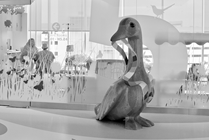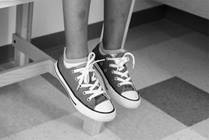Search Results
Viewing: 21-30 of 87 | All
Article
Condoms
Condoms should be used while having sex. They help prevent the spread of sexually transmitted infections (STIs) and reduce the risk of pregnancy.

Blog
Sexually Transmitted Infections: What You Need to Know
Sexually transmitted infections are infections that are spread from person to person through sexual contact, including vaginal, anal, or oral sex, or other skin to skin contact. They can be caused by bacteria, viruses, and parasites.

Condition
Gonorrhea
Gonorrhea is a sexually transmitted infection (STI) caused by the germ Neisseria gonorrhoeae. Anyone that is sexually active is at risk of getting gonorrhea. Those who have had more than one sexual partner are at higher risk of getting infected.

Condition
Herpes Simplex Virus
Herpes simplex virus (HSV) is a very contagious virus that causes infections. There are two types of HSV. One type (HSV-1) usually causes sores around the lips or inside the mouth that are sometimes called fever blisters or cold sores. The other type (HSV-2) usually causes sores on the genitals.

Condition
Sexually Transmitted Infections (STIs)
This Helping Hand™ explains how STIs can spread as well as how they're treated and what you can do to help prevent them.

Blog
When Your Daughter Wants Plastic Surgery: What Parents Need to Know About Labial Hypertrophy
As more teens are seeking elective labial surgery, the American College of Obstetrics and Gynecology through the Committee on Adolescent Health Care has developed guidelines to educate gynecologists about the limited role of surgical interventions for this group of patients.
Resources for Providers
View our practice tools and additional information for providers.

Provider
Gina M Lockwood
Gina Lockwood, MD, is a board-certified pediatric urologist treating patients at Nationwide Children’s Hospital - Toledo. Dr. Lockwood earned her medical degree from Southern Illinois University School of Medicine, received her urology residency training at the Medical College of Wisconsin and completed further pediatric specialty training through a pediatric urology fellowship at Connecticut Children’s Medical Center. Dr. Lockwood is passionate about caring for children, treating medical urinary and genital conditions to improve their overall health and quality of life. In addition to her clinical work, Dr. Lockwood serves as Medical Director of Quality Improvement at Nationwide Children’s - Toledo where she helps lead initiatives to enhance organizational quality of care and patient safety. She is also an active member of the American Academy of Pediatrics’ Section on Urology, contributing to evidence-based resources that support pediatric patients and families nationwide. Dr. Lockwood is currently accepting new patients.

Condition
Cloacal Exstrophy
Cloacal exstrophy, also known as OEIS syndrome, is a rare congenital birth defect that occurs when the lower abdominal organs do not form properly during fetal development. Babies with this condition are born with organs outside the body, such as the bladder, small and large intestine.

